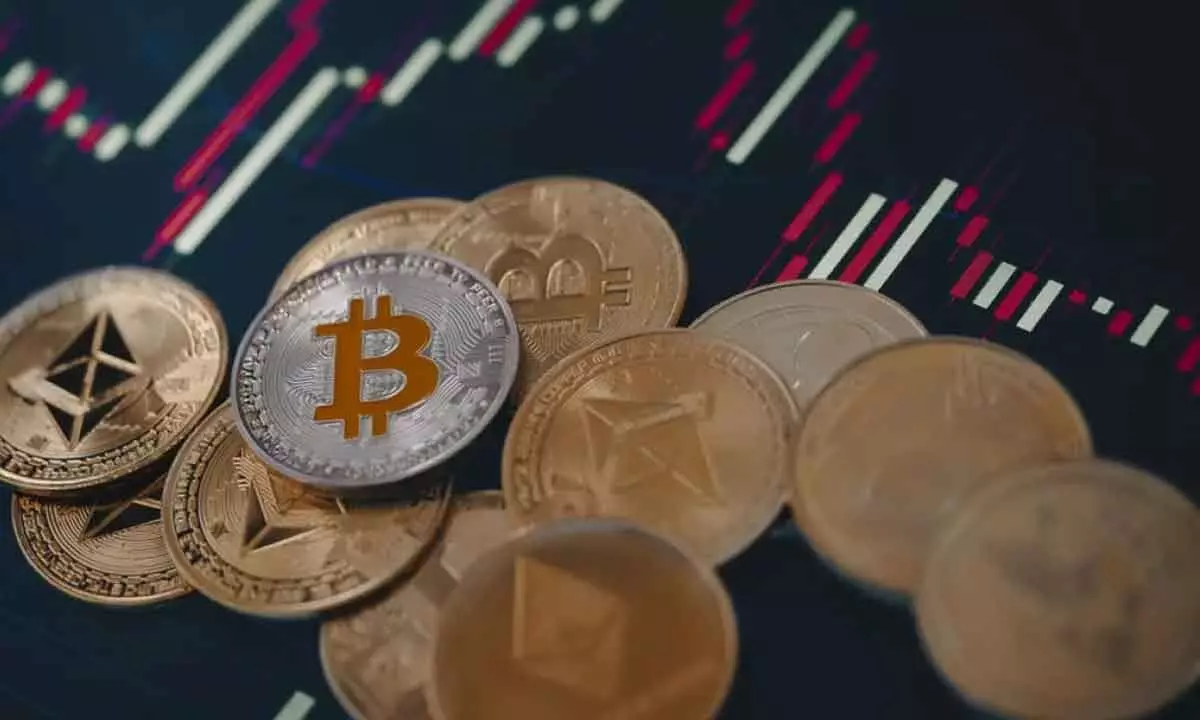Will India-led G20 take up crypto regulation?
As its 1-yr Presidency of G20 begins from Dec 1, 2022, India is planning to discuss crypto regulations with member countries
image for illustrative purpose

Mumbai: India has experienced rapid growth in the number of cryptocurrency investors in the recent years. The regulations for cryptocurrency in India have been under consideration during 2022, especially after India introduced a 30 per cent tax on revenue generated from the crypto tokens/coins and 1 per cent TDS in the Budget 2022.
With India's one-year Presidency of the G20 Group of Nations starting on December 1, 2022, India is planning to discuss crypto regulations with member countries.
Talking to Bizz Buzz, Sakina Arsiwala, Co-founder, Taki, says: "India has experienced rapid growth in the number of cryptocurrency investors in the recent years. The regulations for cryptocurrency in India have been under consideration throughout 2022, especially after India introduced a 30 per cent tax on revenue generated from the crypto tokens/coins and one per cent TDS in the Budget 2022".
With India's one-year Presidency of the G20 Group of Nations starting on December 1, 2022, India is planning to discuss crypto regulations with member countries. The Indian government hopes to establish standard operating procedures for the cryptocurrency industry with increased transparency and enhanced user safety, she added.
The industry is steadily moving towards regulations globally. Country-specific laws are being drafted to protect investors from market uncertainties, obliterate security risks, and prevent any
impact on the monetary system should the crypto industry go through a rough period.
Rajagopal Menon, vice-president, WazirX, said: "It is widely known that most countries that are in the process of deliberating how to bring some order to crypto, will have a regulatory roadmap in place by next year. This will also impact mainstream adoption as the involvement of regulatory bodies will boost the confidence of potential users who are skeptical of crypto."
In short, 2023 will be the year of regulation for crypto as 2022 has been the year of liquidations and bankruptcies.
Amanjot Malhotra, country head (India), Bitay, says: "We are going to see a lot of regulations not just at the local market level, but also at cross-border level."
After the collapse of FTX, the desire of global regulators to write new rules on the crypto market has been growing. The president of world securities regulator IOSCO, Jean-Paul Servais, considers it necessary to start the discussion on the subject. In his opinion, there are already financial principles and laws that could serve as a reference framework for the regulation of cryptography at a global level.
The International Organization of Securities Commissions (IOSCO) brings together regulators from the world's most industrialized countries, including the members of the G20. The body has already established principles for the regulation of stablecoins and will now focus on trading platforms. Servais explained that unlike the traditional financial system, where the activities of each sector are separated and governed by their own set of rules of conduct and consumer protection, this is not the case for the most part in the cryptocurrency market.
By the first half of next year, the Madrid-based global regulator plans to publish a consultation report on the subject.
The discussion on a global guide for the regulation of the crypto market could start from the regulatory framework for MICA digital assets proposed by the European Union, Servais said. This law focuses on the supervision of cryptocurrency trading operators.
The collapse of the FTX.com crypto exchange renewed concern about the cryptocurrency market and the need to regulate it as soon as possible. In this sense, 2023 will be a decisive year to establish new rules of the game that lead to greater supervision and control of these markets, hitherto semi-regulated, according to experts.

